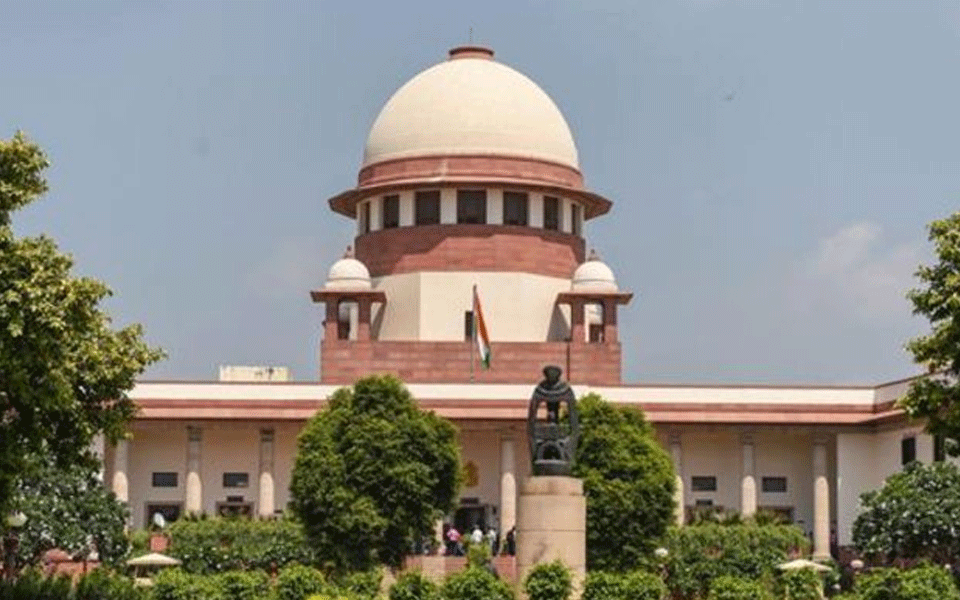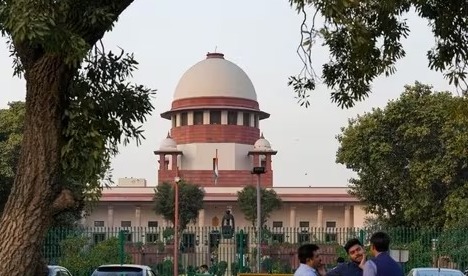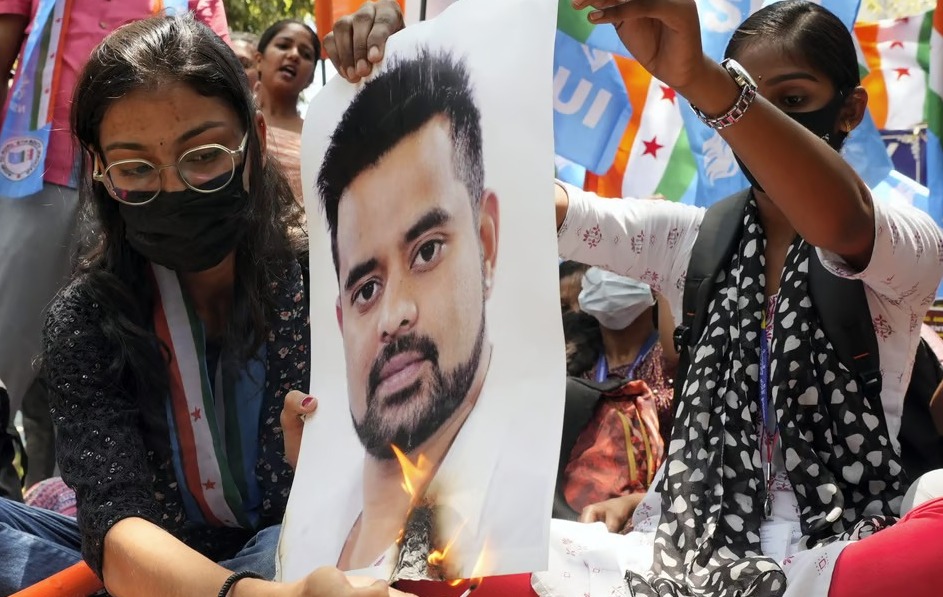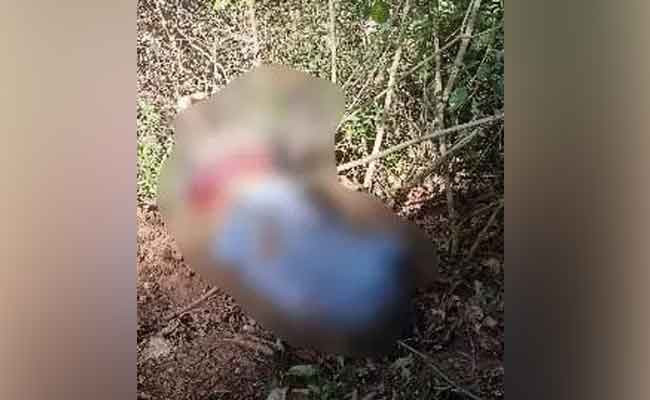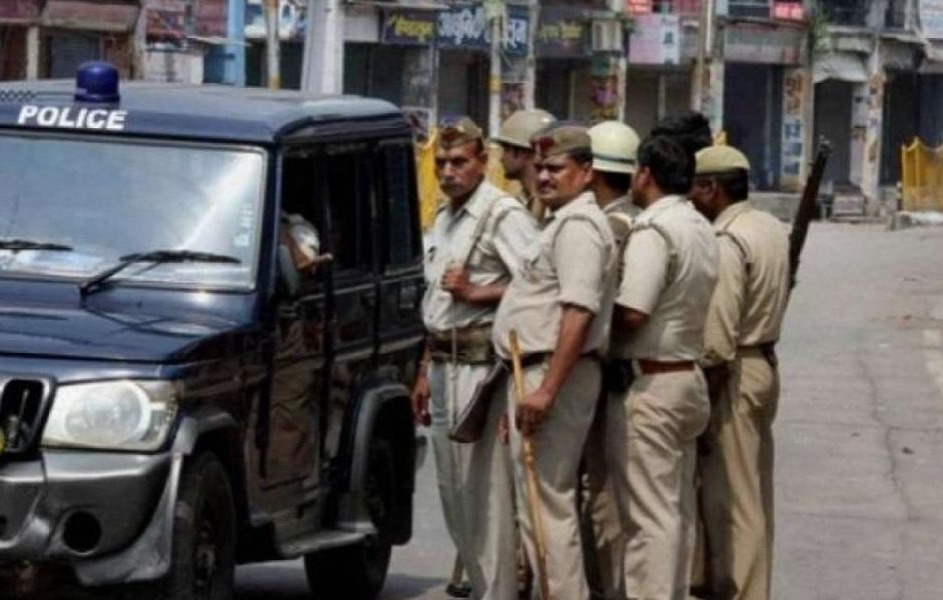New Delhi: The Supreme Court on Tuesday said that its nine-judge Constitution bench would wrap up within 10 days proceedings in the matter relating to discrimination against women in various religions and at religious places including Kerala's Sabarimala Temple.
A bench headed by Chief Justice S A Bobde made it clear that questions to be dealt with would be purely legal in nature and it would not take more time in concluding the hearing.
"It cannot take more than 10 days. Even if someone wants more time, it cannot be given," said the bench which also comprised justices B R Gavai and Surya Kant.
The observations came when Solicitor General Tushar Mehta mentioned the case before the bench, saying that in pursuance of the court's earlier direction a meeting of lawyers took place but it could not finalise the common legal questions for consideration of the nine-judge bench.
"We could not finalise common questions for consideration of my lords. The Supreme Court can consider framing the questions," the law officer said.
The bench then asked Mehta to furnish issues dealt by lawyers in the meeting.
The court will consider issues related to entry of Muslim women into mosques, female genital mutilation in the Dawoodi Bohra Muslim community and barring of Parsi women, married to non-Parsi men, from the holy fire place at Agiary.
The court had on January 13 asked four senior lawyers to convene a meeting to decide on the issues to be deliberated by it in the matter.
While referring the matter to a larger bench, the five-judge bench had said the debate about the constitutional validity of religious practices like bar on entry of women and girls into a place of worship was not limited to the Sabarimala case.
It had said such restrictions are there with regard to entry of Muslim women into mosques and 'dargahs' and Parsi women, married to non-Parsi men, being barred from the holy fire place of an Agiary.
It set out seven questions of law to be examined by the larger bench. They include interplay between freedom of religion under Articles 25 and 26 of the Constitution; need to delineate the expression 'constitutional morality'; the extent to which courts can enquire into particular religious practices; meaning of sections of Hindus under Article 25 and whether 'essential religious practices' of denomination or a section thereof are protected under Article 26.
While the five-judge bench unanimously agreed to refer religious issues to a larger bench, it gave a 3:2 split decision on petitions seeking a review of the apex court's September 2018 decision allowing women of all ages to enter the Sabarimala shrine in Kerala.
A majority verdict by then Chief Justice Ranjan Gogoi and Justices A M Khanwilkar and Indu Malhotra decided to keep pending pleas seeking a review of its decision regarding entry of women into the shrine, and said restrictions on women in religious places was not restricted to Sabarimala alone and was prevalent in other religions as well.
The minority verdict by Justices R F Nariman and D Y Chandrachud gave a dissenting view by dismissing all review pleas and directing compliance of its September 28 decision.
The split decision came on 65 petitions -- 56 review petitions, four fresh writ petitions and five transfer pleas -- which were filed after the apex court verdict of September 28, 2018 sparked violent protests in Kerala.
By a majority 4:1 verdict, the apex court had lifted the ban that prevented women and girls between the age of 10 and 50 from entering the famous Ayyappa shrine in Kerala and held that the centuries-old Hindu religious practice was illegal and unconstitutional.
Let the Truth be known. If you read VB and like VB, please be a VB Supporter and Help us deliver the Truth to one and all.
New Delhi (PTI): The Supreme Court has set aside the Allahabad High Court order granting bail to a police officer accused of raping a 13-year-old girl who was brought to a police station in Uttar Pradesh for registering a complaint of alleged sexual assault on her by four persons.
The apex court said that there is no reason to justify the grant of bail to the accused who was the Station House Officer (SHO) and allegedly grossly abused his office to commit "same heinous crime" of raping the minor victim.
A bench of justices A S Bopanna and Sanjay Kumar delivered the order on a plea filed by the victim's mother challenging the March 2 last year order of the high court.
"In the present case, the situation is far worse as respondent no.1, being the station house officer of the police station, where the minor victim girl was brought for securing her justice, is alleged to have resorted to committing the same heinous crime of raping her," the bench said in its order passed on Friday.
"In this situation, his prayer for grant of bail required more than the cursory appraisal that was bestowed by the high court. We do not find any reasons worth the name justifying the grant of bail to respondent no.1 at this stage," it said.
It allowed the appeal filed by the victim's mother and set aside the high court order.
The bench directed that the accused shall surrender forthwith, failing which the state shall take necessary steps to apprehend him and send him to judicial custody.
Senior advocate H S Phoolka appeared for the victim's mother in the case.
She had approached the apex court against the high court order granting bail to the accused in an FIR lodged for alleged offences under various sections of the Indian Penal Code, including that of rape, and under the provisions of the Protection of Children from Sexual Offences Act, 2012 and the Scheduled Castes and Scheduled Tribes (Prevention of Atrocities) Act, 1989.
In its order, the top court noted that according to the prosecution, the minor girl was placed in the custody of the SHO on April 27, 2022 in connection with registering a complaint against four men, who were alleged to have sexually assaulted her.

